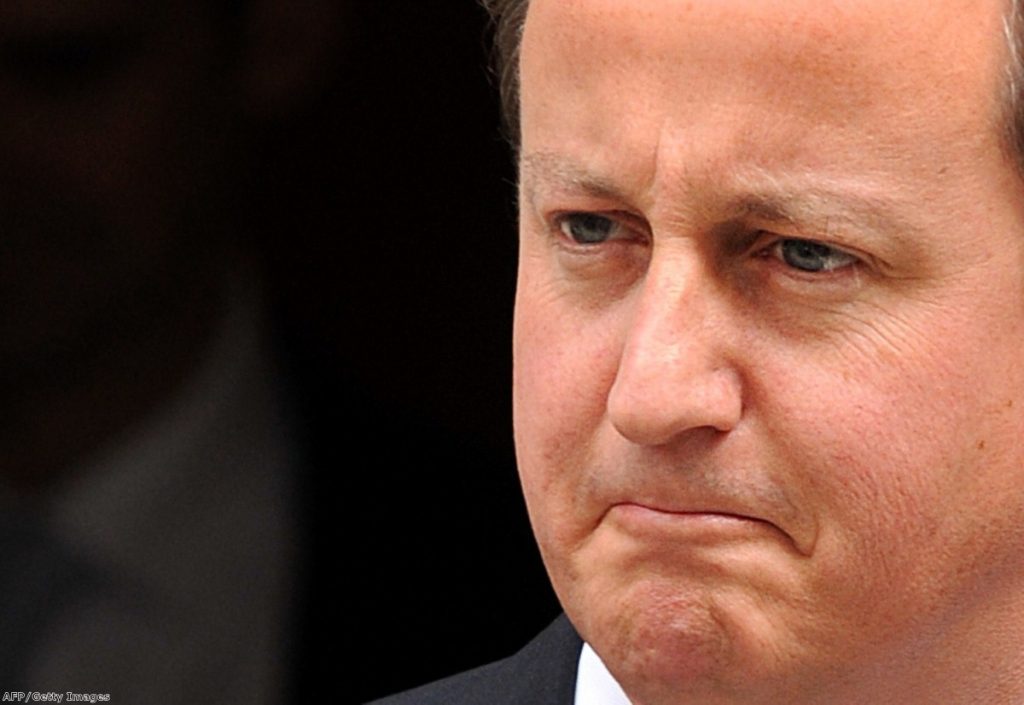Cameron comes clean over donor dinners
By Alex Stevenson Follow @alex__stevenson
David Cameron has hosted "significant" Conservative party donors to dinner in No 10 three times since the general election, he has admitted.
The prime minister bowed to pressure to reveal who he has hosted in Downing Street following yesterday's revelation that Tory treasurer Peter Cruddas had effectively offered dinners with Mr Cameron for £250,000.
Ex-Tory treasurer Michael Spencer and his partner, and businessman David Rowland and his wife, enjoyed the prime minister's hospitality on separate occasions.


Banker Henry Angest, oil boss Ian Taylor and their wives also attended Cameron dinners in their No 10 flat.
"None of these dinners were fundraising dinners and none of these dinners were paid for by the taxpayer," the prime minister insisted.
Mr Rowland alone has given over £4 million to the Conservative party over the last three years.
A further dinner which included Lord Sainsbury, Michael Farmer and other donors took place in Downing Street itself shortly after the general election.
"Peter Cruddas has never recommended anyone to come to dinner in my flat, nor has he been to dinner there himself," Mr Cameron added.
While details about those who met Mr Cameron in Downing Street have now been made public, the prime minister's spokesperson said officials were struggling to find similar details for Chequers, the prime minister's official countryside residence.
Those who met with Mr Cameron at the property at the taxpayer's expense have been recorded, but there are difficulties obtaining details of those who visited at the expense of the Conservative party or Mr Cameron himself.
The prime minister announced a new register of major donors will be published every three months.
Lord Gold will lead the internal Conservative party inquiry into the way it is funded. But Labour is pushing for the independent adviser on public life to hold his own investigation into the revelations about the way the Conservative party raises its money.
Ed Miliband locked horns with Cabinet Office minister Francis Maude this afternoon over party funding. The pair blamed each others' parties for being the main obstacle to reform after the leader of the opposition attacked the "breaking down of the lines between support for a political party and government policy".
Mr Cruddas was filmed by undercover reporters suggesting that "premier league" donations of over £200,000 could result in policy changes.
The Tory party has insisted that no money changed hands in the Sunday Times newspaper's sting. Mr Cameron said the 'policy committee' Mr Cruddas referred to did not exist and denied any donor had influenced the government's policy.
The fictional company Mr Cruddas thought he was negotiating with was based in Liechtenstein. Overseas companies are not permitted to donate money to UK political parties under current rules, leaving the Metropolitan police considering whether the law has been broken.
"I think people are bound to ask questions about whether policy is being made in the national interest or the Conservative party's interest," Labour leader Ed Miliband, whose party is 90% funded by trade unions, said.
"That's why these allegations are so serious, that's why there needs to be a statement made in the House of Commons and a proper independent investigation on what happened, who knew what, when and what contributions were made.
"This goes to the heart of the way the policy is made because it goes to the heart of Downing Street, it goes to the heart of the way that decisions are made in our democracy."
Sir Christopher Kelly, who chairs the committee on standards in public life which published party funding reform proposals last November rejected by all three mainstream parties, said he believed it would be wrong to regard Mr Cruddas' behaviour as "isolated".
"Events like it are inevitable as long as the main political parties are dependent for their existence on large donations from rich individuals or, in the case of the Labour party, a small number of trade unions," he explained.
"The parties collectively need urgently to address the damage this does to confidence in the integrity of the political process."
The cash-for-access scandal is badly timed for the Tories, who were left facing claims that they were a party looking after the interests of the wealthy following this year's Budget.
Chancellor George Osborne cut the top rate of income tax from 50p to 45p and imposed a 'granny tax' on pensioners.









